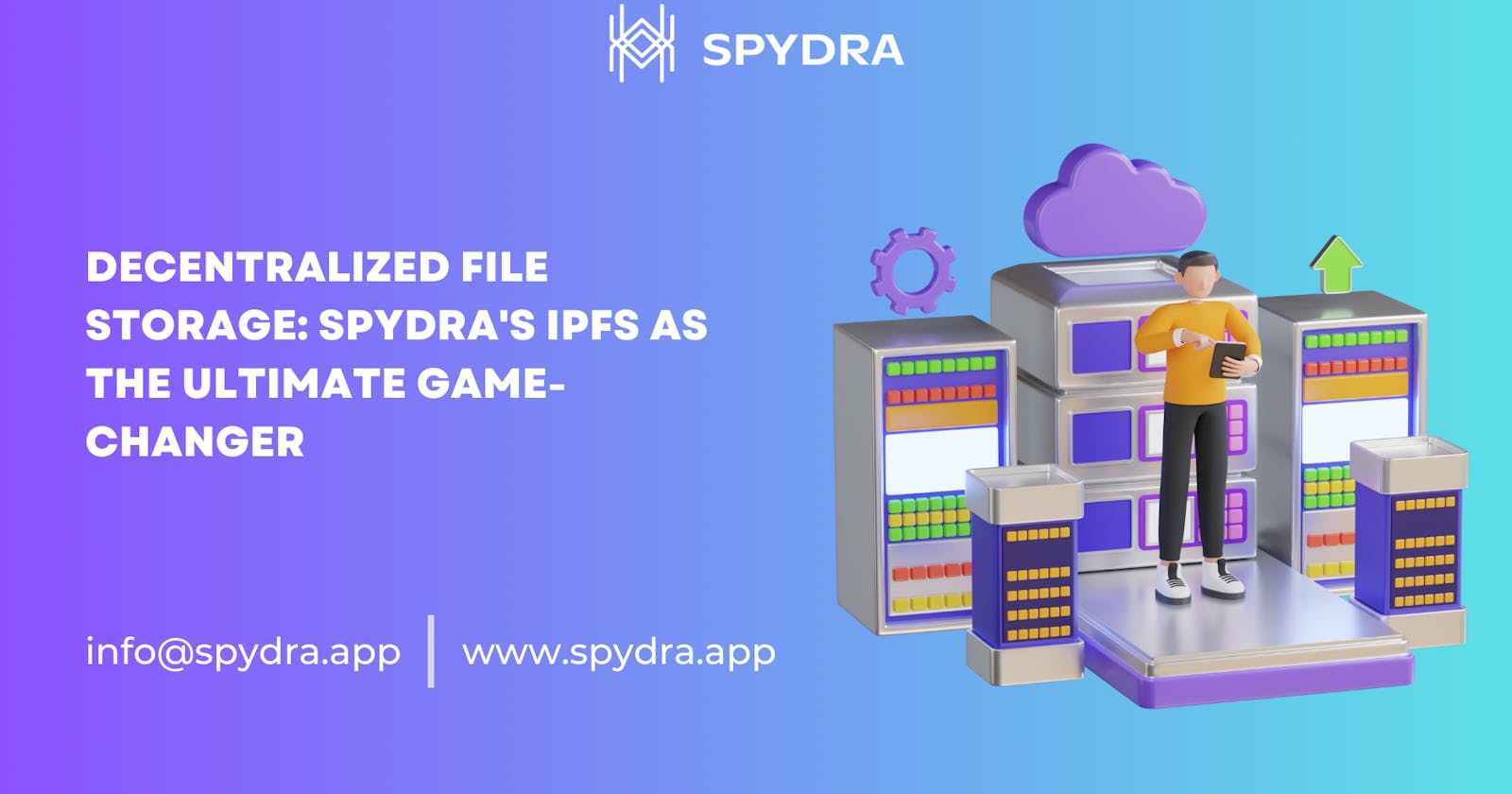In the rapidly evolving landscape of decentralized technologies, Spydra emerges as a trailblazer with its feature-rich implementation of IPFS (InterPlanetary File System). This decentralized protocol for storing and sharing files is poised to redefine the paradigms of Internet file storage. In this comprehensive blog post, let's delve deeper into the intricacies of IPFS and explore how Spydra's integration unleashes its full potential, making it the ultimate game-changer.
Understanding IPFS
IPFS, or InterPlanetary File System, stands for a distributed peer-to-peer protocol and network designed to establish a decentralized and permanent method for storing and sharing files on the internet. This revolutionary approach moves away from the traditional client-server model to a distributed and peer-to-peer architecture, aiming to create a more resilient and censorship-resistant file storage system.
How Does IPFS Work?
IPFS leverages content addressing and peer-to-peer networking to ensure data integrity and accessibility. Each file and all of the blocks within it are given a unique cryptographic hash, and these hashes are used to locate the content on the network, fostering a system that is both secure and highly available.
Key Features of IPFS:
1. Data Integrity:
IPFS employs cryptographic hashes to guarantee data integrity. When a file is added to IPFS, its content becomes immutable. Any attempt to modify the file triggers a change in its hash, ensuring a secure and tamper-proof storage solution.
2. Distributed File System:
Operating on the principle of collaboration, IPFS ensures that each node contributes storage space and bandwidth. This collaborative effort results in a distributed file system where participating nodes work together to provide content availability, fostering a truly decentralized storage solution.
3. Web Integration:
IPFS seamlessly integrates with the existing web infrastructure, allowing websites and applications to serve content over the IPFS network. This integration enhances accessibility and promotes a decentralized approach to web hosting, reducing reliance on centralized servers.
Spydra's Implementation of IPFS
1. Create a Private Network:
Spydra takes advantage of IPFS to empower users to create private networks for sharing stored files. Participants in these networks authenticate to access files, ensuring secure and controlled access to shared content, making it an ideal solution for businesses requiring confidentiality.
2. Easy Deployment with REST APIs:
Spydra simplifies the deployment of IPFS through its user-friendly REST APIs. Developers can seamlessly incorporate IPFS into their applications without concerns about scalability, security, or performance. This streamlined integration process facilitates a quick go-to-market strategy.
3. Cluster Management:
While IPFS operates in a peer-to-peer fashion, Spydra introduces cluster management to optimize IPFS usage in scenarios where a group of nodes needs to work together efficiently. This feature ensures data availability and retrievability, even if some nodes go offline or become unreachable. Uploaded and pinned files are replicated within participants' nodes, enhancing redundancy and reliability.
4. Dashboard Mockup:
Spydra offers an intuitive dashboard mockup that simplifies the management of IPFS resources, making it easy for users to monitor and control their decentralized file storage networks.
Real-World Applications
Decentralized Data Archiving:
Spydra's IPFS finds valuable applications in decentralized data archiving, providing a secure and immutable storage solution for critical information.
Content Distribution Networks (CDNs):
With the integration of IPFS, Spydra becomes an ideal solution for content distribution networks, ensuring efficient and decentralized content delivery.
Final Words
In the realm of decentralized file storage, Spydra's integration of IPFS emerges as a game-changer. The combination of IPFS's robust features, such as data integrity and distributed file systems, with Spydra's additional capabilities like private networks and cluster management, offers a powerful solution for secure, scalable, and decentralized file storage.
Embrace the future of file storage with Spydra's IPFS—your gateway to a resilient, censorship-resistant internet and a paradigm shift in the way we store and share digital assets. Whether it's for private networks, web hosting, or content distribution, Spydra's IPFS is poised to revolutionize the way we interact with and store data in the digital age.

